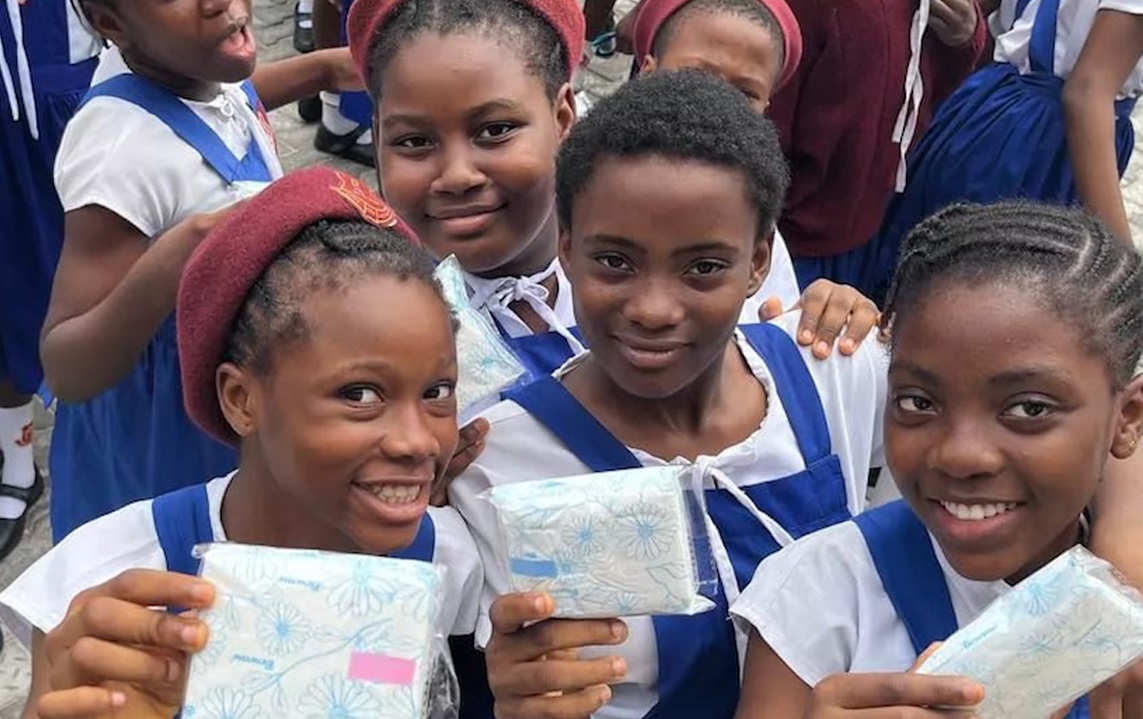In Nigeria, thousands of adolescent girls are forced to miss school every month over something as fundamental as menstruation, with nearly 23% of secondary school girls having reported skipping school because of their period.
Without sanitary materials, many are bound to stay home from school, daunted by shame, or seek out unhygienic alternatives. But a youth-led initiative is gradually rewriting that narrative—one school at a time.
The EmpowerHer Project, an advocacy group led by youth, has provided over 3,000 free menstrual products to girls in 11 schools and communities over the last year.
Beyond distribution, the organisation is pushing for a long-term solution—the integration of menstrual health education into Nigeria’s school curriculum.
The approach is straightforward, and by linking education with access to products, the project is ensuring that no girl is ever forced to choose between her education and her dignity.
The project’s volunteers, ranging from young students to medical doctors and other professionals, deliver interactive health talks at schools and educate girls on how to manage menstruation safely and confidently.
An essential aspect of the project’s innovative side is sustainability. Alongside disposable products, the team promotes reusable sanitary pads as an eco-friendly and cost-effective alternative.
To most families working under the strain of rising living costs, these reusable ones are a long-term solution that relieves the cost while ensuring the regular presence of the girl child in school.
Access to safe products and open education about menstrual health does reduce stress and improve confidence, gradually transforming menstruation from a source of silence and stigma into a source of empowerment.
The more complete solution is one of systemic change, integrating menstrual health education as part of the school curriculum, alongside such subjects as nutrition or hygiene, to help make girls discuss the subject more.
It would also ensure boys and teachers become educated about the realities of menstruation, reducing stigma in schoolrooms.
Earlier this year, the Children Empowerment Fund (CEF) donated 3,750 sanitary pads to about 150 girls at Ajoboyede Comprehensive High School in Ibara Orile, Ogun State.
The pads were distributed alongside menstrual hygiene awareness sessions led by the NGO and officials from the Ogun State ministry of health, the event also saw the launch of the “Red Bloom Box” project, designed to provide accessible sanitary products in schools
Also in June, the Development Initiative for Youth Excellence, Progress, and Stability, or DIYEPS delivered menstrual hygiene packages—including sanitary pads, tissues, toothpaste, and food items—to 450 girls across 20 schools in the Federal Capital Territory.
The NGO, working through awareness events held in schools, urged government support to make menstrual products more affordable and accessible to girls in underserved communities.
Menstrual health is an individual concern, but it has a direct effect on education, public health, and gender equality.
Through the provision of products and information to girls, such programs guarantee girls’ right to learn and to develop.
For each product delivered, each stigma removed, and each girl retained in school, the ripple effects extend beyond classrooms into families, communities, and the nation’s future.
In Nigeria, a significant number of schoolgirls miss school due to menstruation, with 23% reportedly skipping classes. The EmpowerHer Project, a youth-led initiative, is tackling this issue by providing over 3,000 free menstrual products to girls in 11 schools and communities over the past year. The organization aims to integrate menstrual health education into the school curriculum, ensuring no girl has to choose between education and dignity. Volunteers conduct interactive health talks and teach girls safe menstrual management, promoting both disposable and reusable sanitary pads for sustainability and cost-effectiveness.
Efforts also include broader education to reduce stigma and empower girls. Earlier this year, the Children Empowerment Fund donated 3,750 sanitary pads to a school in Ogun State, while the Development Initiative for Youth Excellence, Progress, and Stability distributed hygiene packages to 450 girls in Federal Capital Territory schools. These initiatives call for governmental support to make menstrual products more affordable and accessible, recognizing menstrual health as a crucial factor affecting education, public health, and gender equality. Such programs not only support girls' education but also impact families, communities, and the nation’s future.






